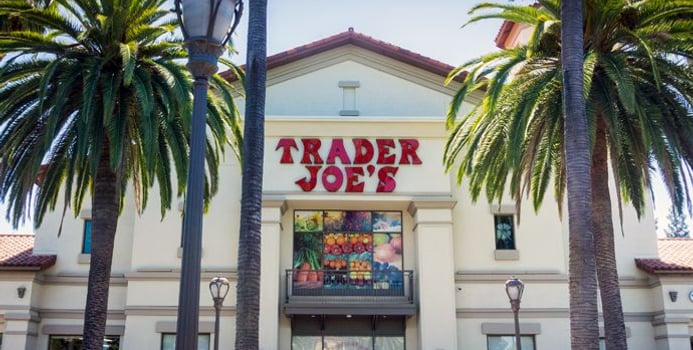While some foods are good picks when shopping at Trader Joe’s, others you may want to steer clear of. Trader Joe’s is a well-known grocery store chain that offers unique foods and a quirky culture, which often makes for an all-around fun shopping experience. But not all Traders Joe’s products are a good for your wallet — or waistline.
1. Sushi
While sushi can make a fairly healthy meal (or appetizer) when you’re not in the mood to cook, Business Insider suggests you avoid Trader Joe’s sushi because it isn’t made in the store — and may have been sitting in a box longer than what’s considered ideal to maximize taste and freshness. But if you’re a sushi lover and want to give Trader Joe’s sushi a try, it likely won’t hurt (unless the sushi has been stored improperly or is expired).
2. Junk Food
Steer clear of sweets and other junk food when shopping at Trader Joe’s when you want to achieve or maintain a healthy weight, boost your life expectancy, and feel your best. Pass on the chips, sweets, sugary drinks and candy regardless of where you grocery shop, as these foods can pack on pounds and offer little (if any) nutritional benefit.
3. Produce
Another food Business Insider says to avoid at Trader Joe’s is produce. The reason? It’s because Trader Joe's produce may be outsourced from anywhere around the world, meaning it might not be as fresh as locally-grown produce from farmers in your community. Does this mean you can’t find good produce at Trader Joe’s? No, but examine it carefully to be sure its freshness is to your liking before you buy.
4. Granola and Sugary Cereals
When shopping for granola and cereals, be sure to check the sugar content before you purchase these foods. You might be shocked to find out that seemingly healthy Trader Joe's foods are packed with added sugar you don’t need in your diet (or your waistline). Look for cereals with less than 5 grams of sugar per serving.
5. Refined Grains
While Trader Joe’s offers a variety of refined grains (such as white bread and white rice), don’t give in to placing these items into your shopping cart. Instead, choose whole grains (whole-grain bread, brown rice, quinoa or oatmeal) so you’re getting more protein, fiber and extra nutrients in your daily meal plans.
6. Bacon
Bacon at Trader Joe's can cost more than buying bacon at Whole Foods stores. Business Insider says you’ll pay about $5.50 per 12-ounce portion of bacon. So while Trader Joe’s will save you money in many food categories (compared with Whole Foods), bacon isn’t necessarily one of those items. Plus, bacon could prevent you from keeping that slim, trim figure you've been dreaming of.
7. Organic Dairy Foods
As with buying bacon, Trader Joe’s may have a steep price tag when it comes to organic dairy foods. Business Insider says organic milk and yogurt at Trader Joe’s are more expensive than the same dairy products at Whole Foods. So while the quality of dairy foods you buy shouldn’t be a problem at Trader Joe’s, the cost may be a bit unsettling.
8. Frozen Dinners
You don't have to avoid frozen dinners at Trader Joe's entirely, but be sure to check food labels on these items. Frozen dinners can be loaded with saturated fat, refined carbs, total calories and sodium — and may be lower in protein and fiber. Many of these dinners also contain preservatives or other added ingredients not present in fresh, whole foods. Don’t rule out all frozen dinners, however — just be sure to check out the label before making a final decision.
[Image via Shutterstock]



